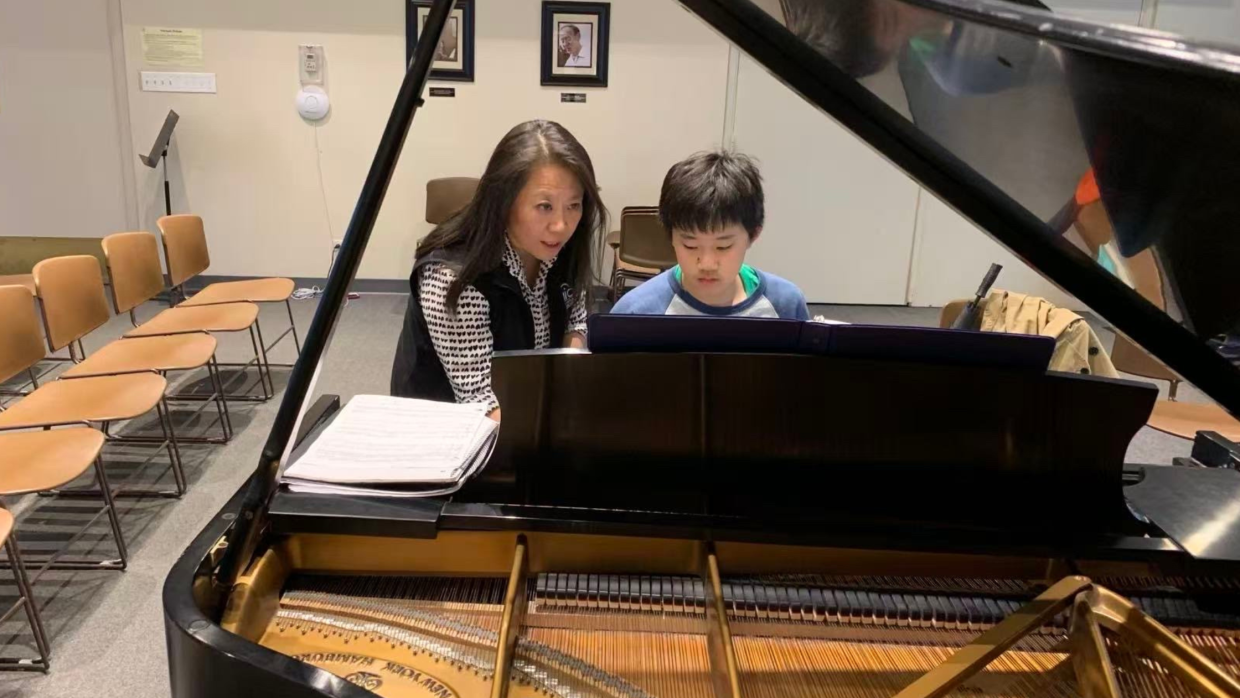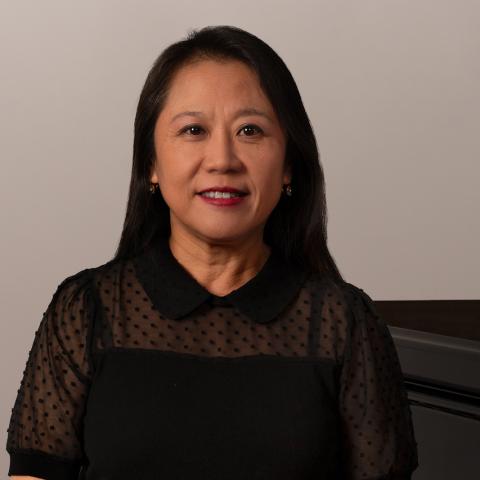The Power of Passion in Piano
Insights from Dr. Soo Young Lee

November 19th, 2025
“God, why did You give me passion… and not talent?” Antonio Salieri’s anguished question in Amadeus is one many musicians recognize. It’s also a question that resonates with Dr. Soo Young Lee, Piano and Chamber Music Faculty at the Music Institute of Chicago and a 2025 inductee into the Steinway Teacher Hall of Fame.
“Like Salieri, I often feel that my passion for music runs larger than my talent,” she shares. “Yet over the years, I have learned that this very passion, persistent and unyielding, is what has shaped my life as a pianist and educator. It continues to guide my journey, fuel my curiosity, and connect me to the universal language of music.”
We spoke with Dr. Lee, who shares her approach to cultivating meaningful progress at any stage and offers a grounded reminder that musical excellence is accessible to every student, not only those pursuing the piano professionally.
Defining Musical Excellence for Every Piano Student
Students come to piano with different stories, different goals, and diverse levels of musical exposure. Dr. Lee begins by helping them understand what excellence means for them.
“Everyone comes to music with a different background and a unique story, and I emphasize that each student’s priorities must align with their own life circumstances — including where their love of music resides,” she says. “Students and parents often arrive at the first lesson hoping to play well and enter competitions right away, but meaningful progress depends on each student’s individual goals and values.”
Excellence is not limited to future music majors or competition-focused students. With academics, sports, and family responsibilities competing for time, she encourages students to pursue music in a way that enhances life rather than overwhelms it.
“A sincere passion for music is still the most powerful asset a student can possess. It is this passion that sustains growth, fuels resilience, and ultimately leads to a fulfilling musical journey.”
How to Choose Piano Repertoire for Recitals, Competitions, and Auditions
Performance, in any form, is an important part of musical growth. Recitals, competitions, and auditions help students build confidence, develop stage presence, and celebrate progress.
For Dr. Lee, thoughtful repertoire choice is the foundation of successful preparation.
“Selecting appropriate repertoire for each individual student is fundamental to successful preparation for any recital, competition, or audition,” she explains. “My process begins with a careful assessment of the student’s artistic strengths, technical capacity, and long-term goals. Only after understanding these elements do, I identify repertoire that will both challenge and highlight the student.”
The time it takes to find the most suitable pieces can vary from person to person. Some can develop a full program in one sitting with Dr. Lee, and for others it may take weeks or months. Most importantly is developing a connection with the student that allows this process to unfold naturally.
“I find that my teaching is most effective when grounded in a strong personal and musical rapport with each student,” she explains. “With this foundation, we are often able to prepare a complete recital program within approximately one year.”
She also encourages repertoire from a variety of musical periods. “I consider it essential for students to develop stylistic breadth,” she adds.
Building Effective Piano Practice Habits
When it comes to practicing, Dr. Lee emphasizes building a solid technical base early and maintaining it consistently.
“Developing a strong technical foundation and solid sight-reading skills is essential for pianists at any level.”
She encourages students to incorporate scales, arpeggios, octaves, and other technical exercises in varied rhythms into their daily routine.
“Just like daily physical exercise maintains fitness, this disciplined routine builds confidence, strength, and reliability in one’s playing,” she says. “Although technical work may not be the most glamorous aspect of piano study, it is indispensable for long-term growth.”
Sight-reading is also an essential part of her curriculum, introduced in every weekly lesson to help students gradually learn to approach new piano repertoire independently. “While this process may feel slow at times, steady weekly lessons paired with regular, thoughtful practice ultimately opens what I often call a “Pandora’s Box” of musical discovery—revealing the profound joy that comes from truly making and understanding the music.”
Supporting Others and Building Community
Musical progress extends beyond the practice room and into the community. Dr. Lee refers to the phrase “No man is an island,” because she believes music becomes more meaningful when shared.
“For nearly 20 years, I have volunteered and sacrificed most of my weekends to run concert series, dedicating my musical gifts and time to sharing music in retirement homes, nursing homes, and also with young audiences,” she reflects. “Although I may not always see the results at once, I stay deeply moved by the power of music. I still remember many glowing faces and warm smiles after each concert. Those moments continually reaffirm why this work matters.”
She encourages her students to support fellow musicians, volunteer when possible, and say yes to collaborative opportunities. “Supporting others not only strengthens our musical community—it strengthens us as pianists, musicians, and moreover, as artists, reminding us why we create music in the first place.”
How Pianists Can Keep Learning at Every Stage
Even after decades of performing and teaching, Dr. Lee reflects, “I remain a student of the instrument—still learning, still questioning, and still exploring the vast world of music.” As Russell Sherman said, “To know piano is to know the universe,” a truth she continues to experience every day.
“Our musical journey never truly ends,” she explains. “It unfolds endlessly as long as we maintain passion and curiosity.” She hopes her students embrace the same mindset.
“My greatest hope is that my students carry this spirit with them,” she continues, “finding meaning, purpose, and joy in each step of their own musical universe.”
Ready to Start Your Piano Journey?
Whether you’re a first-time learner, a returning musician, or a parent exploring lessons for your child, the Music Institute of Chicago offers piano instruction for all ages and levels.

